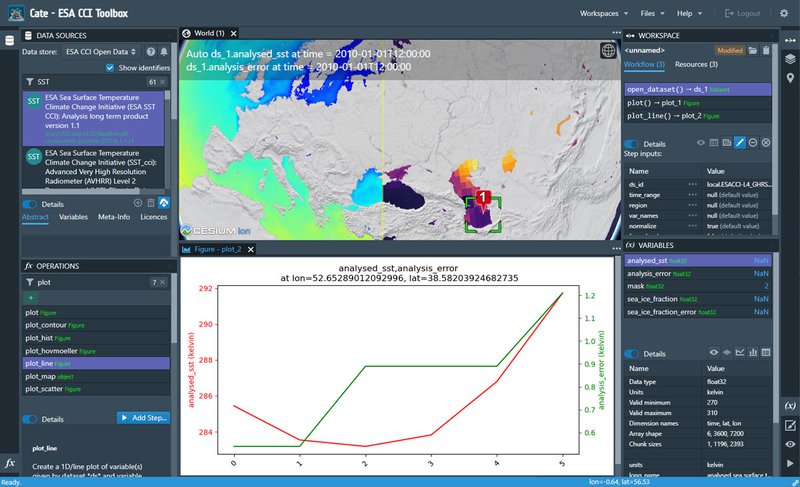Feb. 2, 2022
MOOC: Understanding Climate Change using Satellite Data
New online course develops participants' satellite climate data access and analysis skills
Satellites provide crucial, and increasingly important, information to help understand our changing climate. However, better understanding Earth observation data can be a daunting task for new users. A new online course, developed by the University of Twente, on behalf of ESA, helps students, researchers and other professionals analyse satellite data to help measure and mitigate against the effects of climate change.
The three-week course – Understanding Climate Change using Satellite Data – covers the principles of climate monitoring from space and gives an overview of the range of data available. The course develops learners’ skills using interactive exercises based on real-life climate case studies on the land and cryosphere.
Users can explore the state-of-the-art technology used as part of ESA’s Climate Change Initiative, which generates long-term datasets for several key aspects of the climate system. Derived from satellite missions, including from ESA Earth Explorers and the Copernicus Sentinels, the data records are ‘climate quality’, meaning they are suitable for climate research, for use with climate models and climate and environmental services. They are also widely cited in the recently published Intergovernmental Panel on Climate Change Sixth Assessment Report.

Video tutorials, tools & exercises
The course combines video tutorials from world class climate scientists working as part of the ESA Climate change initiative including permafrost expert Annett Bartsch of b.geos and land cover expert Pierre Defourny of Université Catholique de Louvain with interactive exercises, and provides in-depth coaching to enable learners to use the Climate Analysis Toolbox – an online tool designed for quick analysis of the CCI satellite data records. Using the tool, learners can generate time series, maps and undertake a range of other analyses.
Credits towards your degree
On completion, learners receive a certificate to one European Credit Transfer and Accumulation System (ECTS) study credit, which may be used to contribute towards university degree courses by certain institutions. The online course is available until 13 March 2022.
To join the course, visit Futurelearn.

